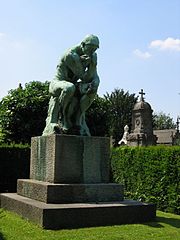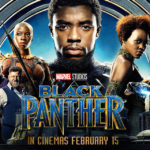The Point And Purpose Of Reading Fiction
 Not everyone finds philosophy fun. I do, for whatever reason. More than that, I find it to answer a lot of why questions. (So maybe I never grew out of that little-kid stage when you ask your parents all the why questions: Why is the sky blue? Why do people have only two legs? Why is the ocean salty? Why are boys so noisy? Or whatever. 😉 )
Not everyone finds philosophy fun. I do, for whatever reason. More than that, I find it to answer a lot of why questions. (So maybe I never grew out of that little-kid stage when you ask your parents all the why questions: Why is the sky blue? Why do people have only two legs? Why is the ocean salty? Why are boys so noisy? Or whatever. 😉 )
After a couple recent internet discussions about fiction (see for example “Realistic Christian Behavior” by Sally Apokedak at Novel Rocket and “Thank you, Bethany House Publishers” by Mike Duran), I can’t help but think a lot of our diverse views hearken back to our philosophy of fiction.
It may surprise some to learn that fiction in the form of the novel hasn’t been around all that long. Of course it had roots in the oral tradition of storytelling and in the myths of various cultures, but not until the development of the printing press did fiction as we know it begin to take hold.
Those early myths and legends are important because the novel in its first endeavors seems to have adopted similar purposes. One of those appears to be to understand the world–natural and supernatural–and another, to invite the readers to mirror the virtues of the story heroes.
John Bunyan’s Pilgrim’s Progress, one of the first English works of fiction, exemplifies both these purposes.
Another purpose is present, however, in works like Geoffrey Chaucer’s Canterbury Tales which served as both a reflection and critique of society.
These purposes seem at odds with one another. Are stories working to acculturate readers or are they serving to expose life and society for what it is?
Some stories appear to work toward both–showing some negative of society in order to assimilate readers into a competing ideology (think Avatar and The Da Vinci Code).
A more recent idea is that reading is primarily for self-growth:
Reading is self-mastery, because the self (and its affirmations) are held in check while the author (and his structures of thought) are fully attended to. True diversity in literature would be to read authors in circumstances as different from our own as possible, because we might then imagine ourselves as different than we are — not the creature of circumstances, but their master. Reading is fundamental, all right: to a person’s ethical development. … If reading is the key to self-mastery, fiction is the master key. Those like Hanson and Hitchens, who invite disagreement, are good too. But fiction demands that you either identify with the characters’ decisions or distance yourself from them, and this has a powerful effect. In doing so you shape your own moral experience. (“So Why Read (Fiction) Anymore?” by D. G. Myers)
Centuries earlier Aristotle introduced the explanation for fiction’s power.
As Aristotle pointed out in Poetics, “the historian speaks of what has happened, the poet of the kind of thing that can happen” (pp. 32-33). … And when Aristotle talks of poet, nowadays he might sooner have said fiction writer. So, as we enter a book, play, or film, in a fictional world of what could happen, we set aside our own immediate concerns. Often we take on the concerns of a protagonist. Always we enter a world that is somewhat different than our own. In a narrative world we can compare our own reactions, thoughts, and feelings, with those of the characters in a story. Thereby we can come to know better both ourselves and others.(“Why Read Fiction?: Why fiction is important in psychology” by Keith Oatley, Ph.D. in The Psychology of Fiction)
Interestingly, as we saw last year (see “The Psychological Study Of Creativity – Or, You Experience What You Read”), recent studies of the brain have shown that reading fiction does far more than what scholars once believed. It is, in fact, a form of simulation:
What scientists have come to realize in the last few years is that narratives activate many other parts of our brains [besides language regions] as well, suggesting why the experience of reading can feel so alive. … The brain, it seems, does not make much of a distinction between reading about an experience and encountering it in real life; in each case, the same neurological regions are stimulated. … Fiction — with its redolent details, imaginative metaphors and attentive descriptions of people and their actions — offers an especially rich replica. Indeed, in one respect novels go beyond simulating reality to give readers an experience unavailable off the page: the opportunity to enter fully into other people’s thoughts and feelings. (“Your Brain on Fiction” By Annie Murphy Paul, emphasis mine)
Fiction is powerful, that’s clear. It allows us readers to enter into either a story that aims to bring us into alignment with society by challenging us to mimic the heroic protagonist or into one that aims to reflect and/or question our ideas of the way the world works.
A simple view of stories then is that some give readers an ideal to model and others give readers a reflection to critique.
 I think this understanding of stories is at the heart of a lot of disagreements about novels in contemporary society, whether secular or Christian. For example, just last week here at Spec Faith, the question came up as to whether Christians ought to read horror. We frequently discuss whether or not we should expose ourselves to “gritty” stories about the garbage dump of life. Must we wallow in the mud, or can we choose instead to read stories that evoke truth and beauty?
I think this understanding of stories is at the heart of a lot of disagreements about novels in contemporary society, whether secular or Christian. For example, just last week here at Spec Faith, the question came up as to whether Christians ought to read horror. We frequently discuss whether or not we should expose ourselves to “gritty” stories about the garbage dump of life. Must we wallow in the mud, or can we choose instead to read stories that evoke truth and beauty?
A tangential issue that might help with that question is this: are truthful stories beautiful (artistic) simply because of their truth? Here’s another one: Can stories be considered truthful if they tell only one side of life, either hope or hell?
I tend to think that we readers position ourselves on one side or the other of the “what should we read” debates based on how we answer these questions. If we understand reading to be a mechanism by which we learn how to be or as a means for personal growth, then we probably want books that call us to godliness or at least to ethical behavior.
If on the other hand, we see reading as a reflection and critique of society, then we want stories that push our awareness of the world, including the seamy side of society.
So why (beyond escape) do you read?











































I just want to read something that means something.
Maybe I’m just too much of a pessimist but y days are mostly a whole lot of not-meaning-anything, like shredding medical records or transferring calls or writing letters. So I read to understand what it’s like to do things that feel like they matter, like there is some sort of thing at stake.
So, I read for personal growth! Because I’m not exactly going to get much of a chance to grow because of what happens on a day-to-day basis sitting at an office reading fanfiction and waiting for someone to call, am I?
Julius, I take it you’re saying that you don’t have a preference whether or not the meaning is something you agree with–just that it says something significant.
That’s an interesting point. Your “escape” then would seem to be much like the one Tolkien described. You want to leave the trivial for the profound, the purposeful, the important.
I think God created us for Purpose, so I think your “philosophy of reading” reflects that. 😉
Becky
Yes, for better or worse, I don’t even have to agree with it. I prefer to read things I *do* agree with, which is why I read and look for Christian fiction (and am often disappointed outside of Amazon and such) but a lot of the time I’ll settle for an imperfect picture.
I have a favorite internet-author named Chatoyance. She’s intellectual, her writing is pretty good, her stories deal with tough issues, and they make you laugh and they make you think. She also basically stands on the opposite side of a vast and bottomless chasm from me on A LOT of things… but I can not care for a bit. I don’t accept it. I respond by disagreeing, sometimes, with the characters themselves. But I understand that there’s more even in her strange, (I think somewhat unvirtuous) views because she’s trying!
And perhaps, my own views become more definite and clear-cut as I discover exactly what they aren’t by meeting something my spirit cannot abide! Or something.
I read because I know there’s more out there than most people see, and books are windows into that land.
I forgot about that. I love to read novels to see new places that I can’t afford to go to in real life.
I read for information, for societal critiques, and, in small part, for personal growth. Knowledge=personal growth, so maybe that’s a bigger part than I think. All of the above, I guess. That’s why I have so many books!
Great post.
I read because I learn how to act as I watch other people act in books. I love to study human nature and I think novels help me do this. I can’t know what my friends are thinking. I can’t know all their snarky thoughts or their insecurities or secrets. But in novels you get all that and it affirms you, to some extent.
Also, when I see wonderful characters I want to be a better person. I love reading missionary stories for this reason, too. I love to see good win. And in real life good doesn’t always win in the temporal plane. So I hunger for that victory that God has promised we will one day have.
I read fiction (and watch movies, and play games — all are fiction, all are descended from the ancient epic, in my opinion) because I get deeply depressed thinking about my life and the Big Questions that I can’t answer. I often despair when I hear of controversies in Christianity about significant things like eternal security, the nature of Scripture, Creationism, etc. I wonder how I can believe what the Evangelical faith I was raised in teaches me, and yet I deeply believe that I cannot make my life have meaning on my own. I know I need God, and that is the primary reason that I am Christian despite all the agonizing problems I’ve had with Evangelical doctrines.
I guess I feel crushed by too dogmatic of a society. The secularists think they know everything, and so do the Evangelicals. I need to believe in meaning that transcends human understanding. Reading fiction, especially speculative fiction, especially the high fantasy that I love the best, lets me bask in glorious significance unbarred by societal or theological boxes.
Becky,
I address this topic on my blog:
http://kammbia1.wordpress.com/2012/06/09/wisdom-of-marion-2-16-can-christian-fiction-just-be-entertaining-and-enjoyable/
Somehow, as Christians (some of us) have an aversion to anything fun and enjoyable. It seems like we believe God doesn’t want us to do anything on earth until we get to heaven. Nothing could be further from the truth.
There is a time to be serious. But, we can’t be that way all the time. I tried to be that way through my 20’s and into my mid 30s.
I have learned that it’s okay to do enjoyable things and if God is the author of everything….he is okay with that as well.
I want to read for fun as well as reading serious works. Somehow, as people we want it to be all or nothing and not a balance of all things. I wonder why is that?
Thanks for posting about this topic. We don’t have to be the sourpuss or serious Christian all the time. We can smile. We can laugh. We can do something enjoyable and that includes reading books that are fun.
Marion
Marion, thanks for pointing us to your blog post. I don’t think as much separates our opinions as it might seem.
I left unstated the fact that reading fiction should be enjoyable. In asking why people read, I knew at once that I needed to qualify it with the “besides escape” phrase, because most of us would include that, I think. Reading is a form of play. Rarely do I pick up a novel because it’s what’s good for me. I read for enjoyment.
But we are complex beings, as you alluded to–we aren’t single-minded or one-dimensional. God gave us minds and bodies. He gave us emotions but also wired us spiritually. He made us relational as well as imaginative, and so on.
My contention, therefore, is that we bring all those things to all we do, including our reading. In other words, reading does far more than what we think it does. We may read for enjoyment but discover something about ourselves. We may read to learn about societal values and discover the fun of a different world.
But even in reading for fun, the question is, what makes reading fun?
I can’t help but think that thinking deeply is a good thing, since God made us intellectual beings. He doesn’t want us to turn off our brains, nor does He want us to turn off our enjoyment. In other words, I don’t think we should say, Church is for thinking and books are for fun. I believe we should bring all of who we are to all we do.
Becky
A tangential issue that might help with that question is this: are truthful stories beautiful (artistic) simply because of their truth?
I would say no. Artistic beauty and spiritual beauty are two different things, and they don’t always come together. In reading or watching fiction, I have seen the truth artlessly stated and I have seen lies artfully stated. In art, too, beauty can be deceptive.
Here’s another one: Can stories be considered truthful if they tell only one side of life, either hope or hell?
On one hand, I’m inclined to say that if it is true, it is truthful. On the other, someone once wisely warned, “Beware of the half-truth. You may have gotten hold of the wrong half.” An incomplete picture is not deceptive, but it may be misleading.
I would also like to point out that hope is not the same as complacency. Complacency says that all’s well; hope says that all will be well, or at least can be. Hope does not exist without need. So a story that tells only hope is far more complete than one that tells only hell.
Shannon, thanks for addressing the tangential questions. Those actually captured my interest so much I contemplated making this a series and looking at each of those in more detail.
You said
Great point. By definition, it seems hope implies all is not well now, things aren’t as they should be. Consequently, a story of hope would of necessity paint the conditions from which hope arises. I hadn’t thought that through (kind of just liked the alliteration of hell and hope, I guess. 😉 ).
I had in mind the story that ends well for all.
As I think about it, Shakespeare’s plays mirror the contrasts: Comedy, in which all the confusion comes right in the end, for all the players, or tragedy, in which the confusion yields calamity.
Life really isn’t one or the other.
So back to the question: Are stories that show only one, untruthful? I’d say they are only if they imply that the other does not exist or is a lie. Hence, I think a lot of secular fiction is untruthful because by implication it declares God’s ultimate victory or a person’s ability to spiritually conquer to be either non-existent or null and void.
Becky
I read for a variety of reasons, depending on the time of day, the mood I’m in, the amount of time I have, the conditions around me. I won’t get much out of a deeply philosophical book that requires concentration if I’m in a place to be constantly interrupted or only have a short amount of time. So in those circumstances, I’ll grab a light fiction novel that I can enjoy in short bursts.
I prefer fiction that models something positive: overcoming great odds, handling conflict, resolving internal struggles. I like a story that takes me somewhere new and different. The mundane bores me. I want something that inspires me.
I don’t think reasons to read can be put in a box. And they should never become doctrine. “Thou shalt read to be informed.” “Thou shalt read to be inspired.” “Thou shalt read to understand society or the human heart.” Ha!
People read for as many reason as people walk and talk and breathe and think. Writers write for the same variety of reasons. To express what they see. To paint a vision of a possible reality that they’ve never seen but long to experience. To illustrate a point. To share a pain or a joy. To tell others they’re not alone, or to feel less lonely themselves.
Thank you so much for mentioning the study about how reading is a form of simulation. That exact concept came to me through my own observations this past year, and it’s really nice to know it’s not just something I made up (ha!).
A big reason fiction matters (in my opinion) is because when people read a story, they LIVE it. As readers, we can experience something we’ve never lived, be someone we’ve never been. As writers, we have the chance to plant memories that will never be forgotten, and draw people towards a God they may never have known or recognized.
What a phenomenal opportunity.
Teddi, you said
I wanted so much to elaborate on this point and connect it to Friday’s post on horror by Mike Duran. The New York Times article “Your Brain On Fiction” included some fascinating research results of brain studies. Here’s one:
And this:
Or how about this (it’s a little frightening, I think, or at least for a writer, intimidating):
With this in mind, it seems fair to conclude that reading about a frightening event has the same effect on the brain as having experienced it.
I tend to think this should make us less categorical in our statements about what fiction should or should not be and what readers should and should not read.
Becky